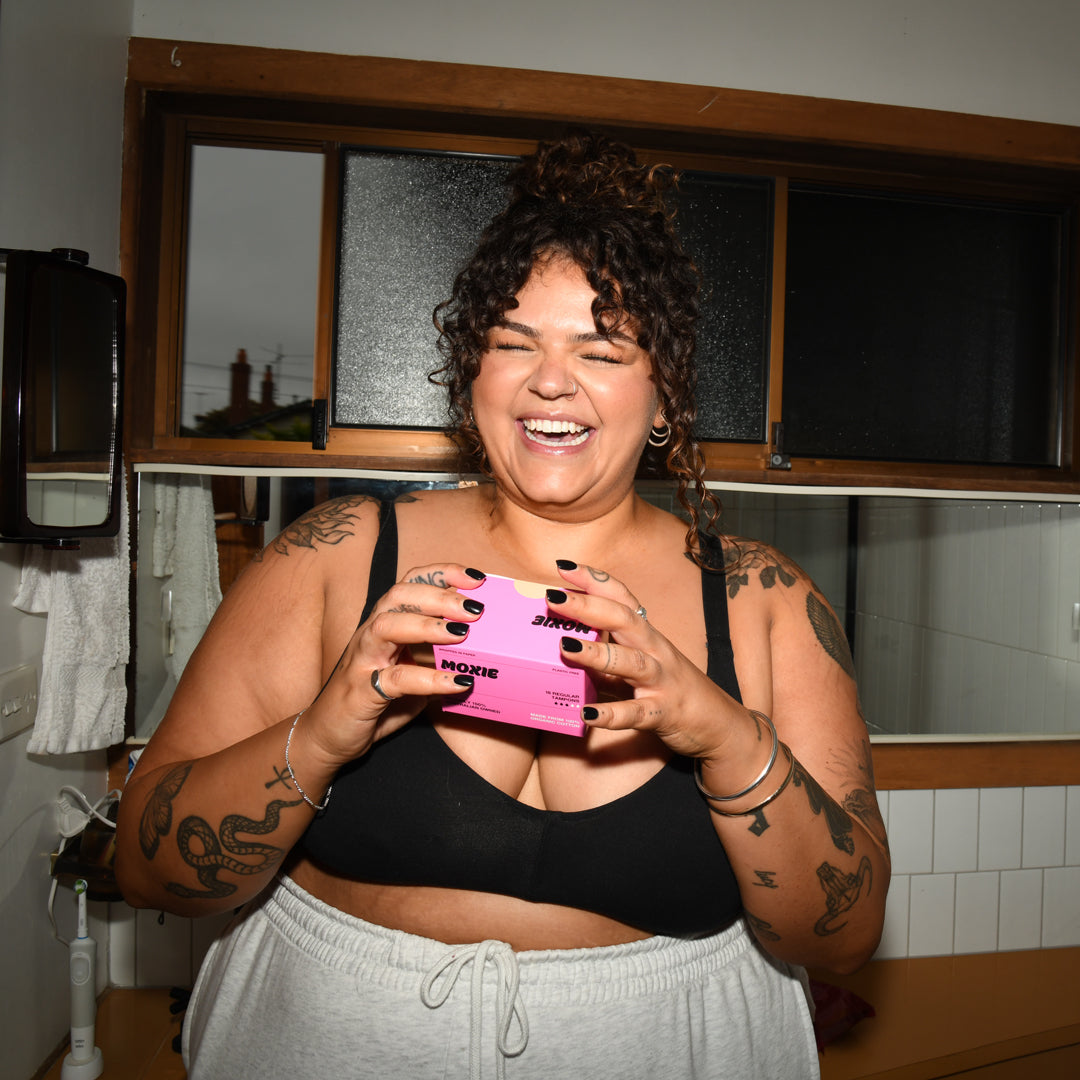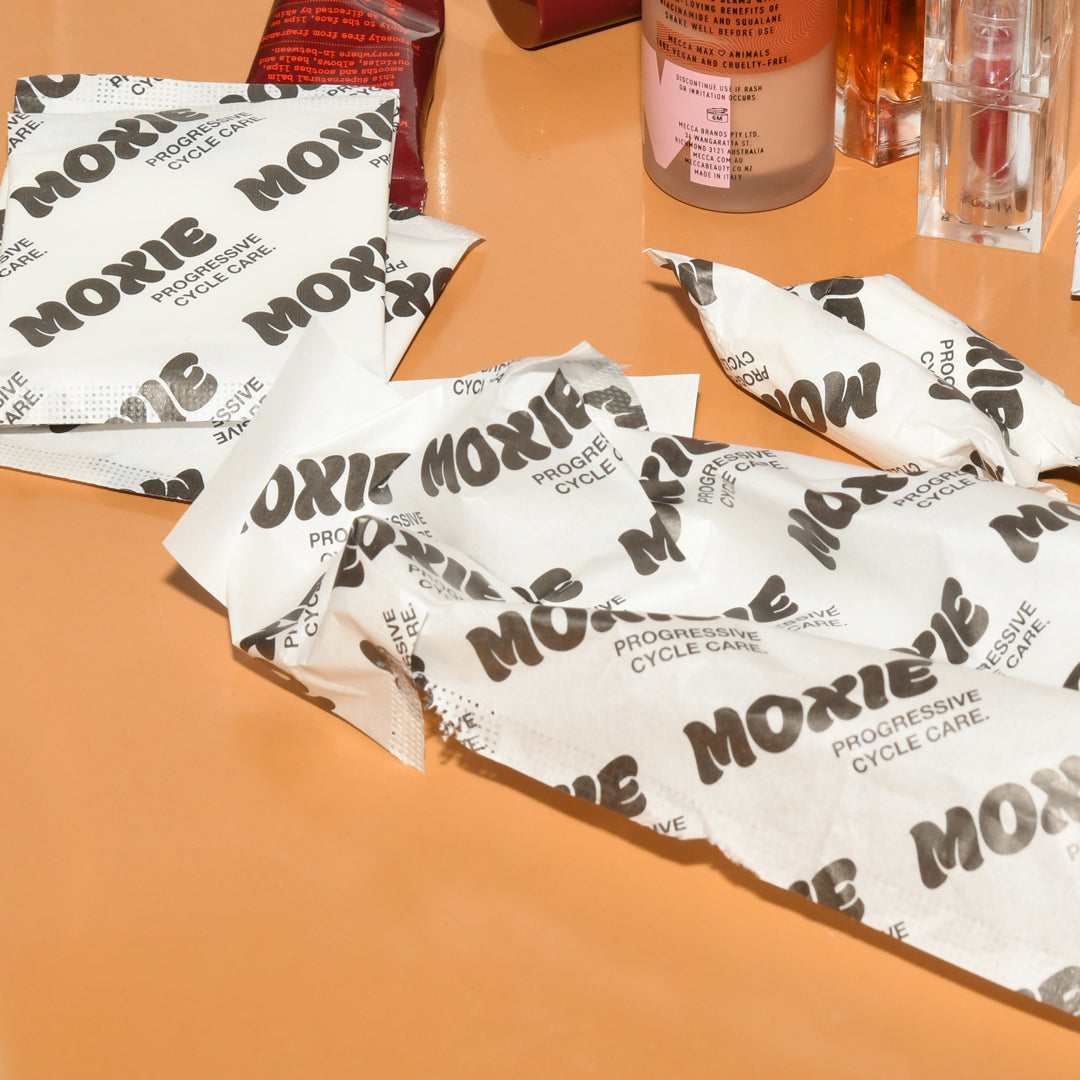Menstrual Myths, Debunked: The Real Facts About Periods.

Photo by Daniel Ramirez via Unsplash.
Periods are a part of life for most women and those who menstruate, but that doesn’t stop the flood of myths that surround them. Whether it’s old wives' tales passed down through generations or internet rumours, it’s time to set the record straight. Let’s break down some of the most common period myths and separate the period facts from fiction.
MYTH 1: DOES YOUR PERIOD STOP IN WATER?
The Myth: Many people believe that when your body is submerged in water - like in the pool or in a bath - your period just magically stops.
The Reality: While it might feel like your period has paused, that’s not exactly true. The pressure of the water can reduce or temporarily slow down the flow, but your body is still shedding the uterine lining. So, while you might not notice as much (or any) blood in the water, your period hasn’t technically stopped. But don’t worry - it’s completely safe to swim while on your period (or bathe). Just use a tampon, menstrual cup, or period swimwear for period peace of mind.
MYTH 2: YOU SHOULDN'T MASTURBATE ON YOUR PERIOD.
The Myth: Masturbating while menstruating is a no-no for a variety of reasons, from hygiene concerns to discomfort.
The Reality: Not only is it totally safe, but it might actually help ease period symptoms (as reported by many in the Moxie community!). Orgasms cause the uterus to contract, which may help relieve cramps. Plus, all those feel-good hormones released during climax, like oxytocin and dopamine, can be a natural mood booster when PMS (a.k.a. Prememstrual Syndrome) has you feeling down. Just be mindful of hygiene if you’re using sex toys or fingers - washing up beforehand, and after, is always a good idea.
MYTH 3: YOU CAN MAKE YOUR PERIOD END SOONER.
The Myth: If only we could speed things up, right? There’s a persistent belief that certain exercises or products can make your period finish quickly.
The Reality: Unfortunately, there’s no magic trick to fast-forward through your period. The length of your period is determined by how long it takes the uterus to shed and fully empty its lining. While it would be nice to press the fast-forward button, the duration of your period (which typically lasts between 3-7 days) is mostly down to biology. Some people may have shorter or lighter periods, while others have longer or heavier ones - this is often linked to genetics, hormonal health, and lifestyle factors. That said, staying active and hydrated can sometimes make your period feel more manageable.
MYTH 4: CERTAIN FOODS CAN MAKE YOUR PERIOD COME FASTER.
The Myth: Spicy foods, pineapples, or other home remedies can jumpstart your period if you're impatient for it to arrive.
The Reality: While there are some foods that can impact your hormones, there’s no concrete evidence that eating specific foods can bring on your period earlier. Your menstrual cycle runs on its own schedule, primarily dictated by hormones like estrogen and progesterone. Eating well and keeping a balanced diet might help regulate your cycle over time, but the idea that a hot curry will speed things up is just a spicy myth.
MYTH 5: TAMPONS CAN GET LOST INSIDE YOU.
The Myth: Many people worry that a tampon can somehow get lost inside their body, or up in their cervix, if the string goes missing.
The Reality: It’s physically impossible for a tampon to get lost in your body! The cervix, located at the top of the vagina, is too small for a tampon to pass through. If the string does happen to get stuck, come loose, or make it's way up inside your vagina, try to stay calm - relaxing your muscles can make it easier to retrieve the tampon. And, if you’re really struggling, a quick visit to the doctor (or ER) will solve the problem.
MYTH 6: YOU CAN'T GET PREGNANT WHILST ON YOUR PERIOD.
The Myth: Having sex on your period is a foolproof way to avoid pregnancy.
The Reality: While it’s less likely, it’s not impossible. Sperm can live inside your body for up to five days, so if you have a shorter cycle and ovulate soon after your period ends, there’s still a chance of pregnancy. Always use protection if you’re not trying to conceive, regardless of where you are in your cycle.
MYTH 7: PMS ISN'T A REAL THING.
The Myth: Some people claim that PMS isn’t real and that it’s just an excuse for mood swings and irritability.
The Reality: PMS is very real, as many can attest to! Hormonal changes leading up to your period can cause a variety of physical and emotional symptoms, including bloating, mood swings, fatigue, and irritability. While not everyone experiences PMS, studies have shown that it’s a common occurrence for many menstruators. So if you're feeling a bit off before your period, don’t let anyone tell you it's "just in your head."
MYTH 8: YOUR PERIOD SYNCS WITH YOUR FRIENDS.
The Myth: If you spend a lot of time with other women who have their period, your cycles will eventually sync up.
The Reality: While this idea is fun to think about, science doesn’t really back it up. The idea of menstrual synchrony gained popularity in the 1970s, but more recent studies have found that it’s more likely a coincidence. Each person’s cycle is influenced by their own hormones and can vary greatly from one month to the next, making true synchrony unlikely.
FINAL THOUGHTS
Periods may be a regular part of life, but that doesn’t mean we need to keep believing or living by the same old rumors. Remember, every person’s experience with their period is unique, but understanding the facts helps break down the stigma and ensures we all receive the care and cycle support we deserve. So next time someone comes at you with a period myth, you’ll be ready to debunk it like a (period) pro.
Remember, the info you see here is intended to inform and educate only, and does not constitute medical advice, nor should it repalce a personalised diagnosis from your own medical practitioner. If you have any concerns about your health, please see your Doctor.



